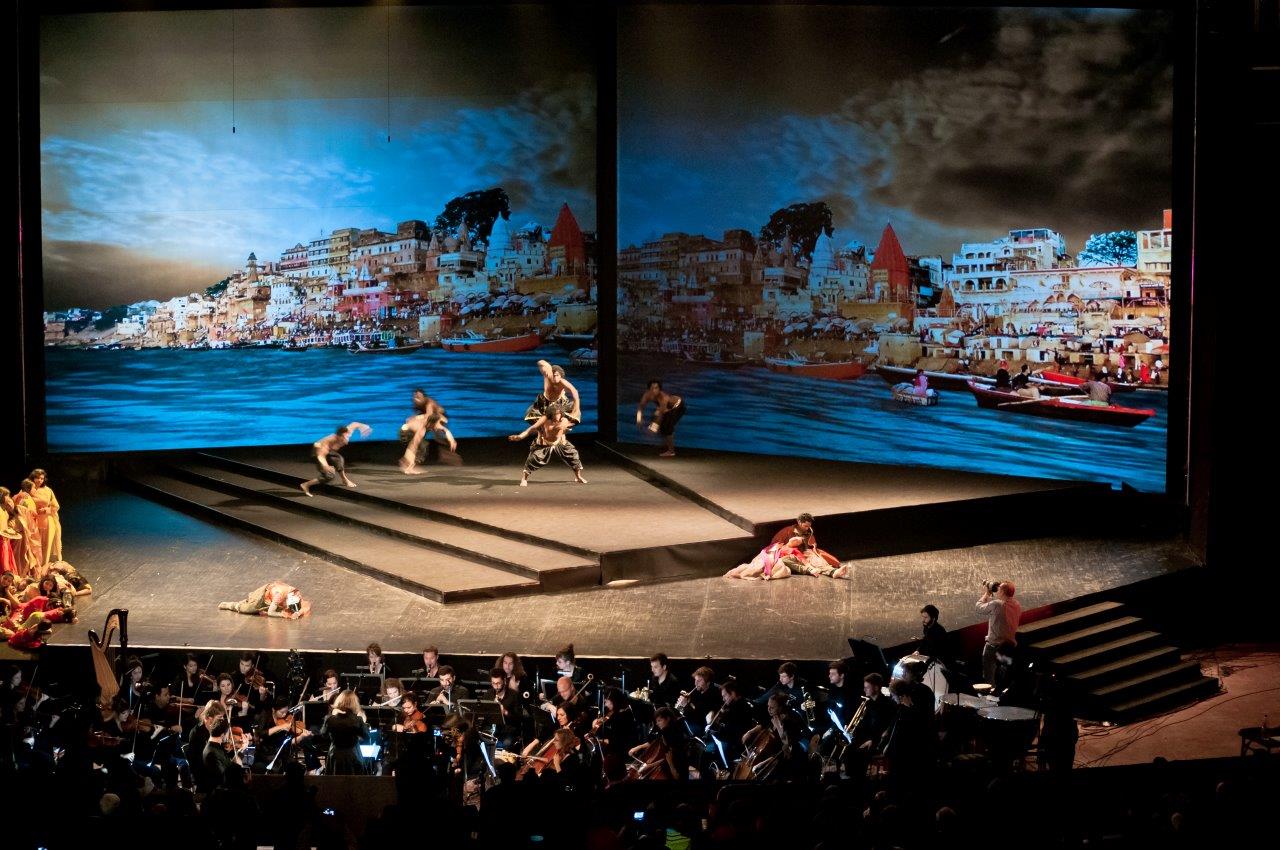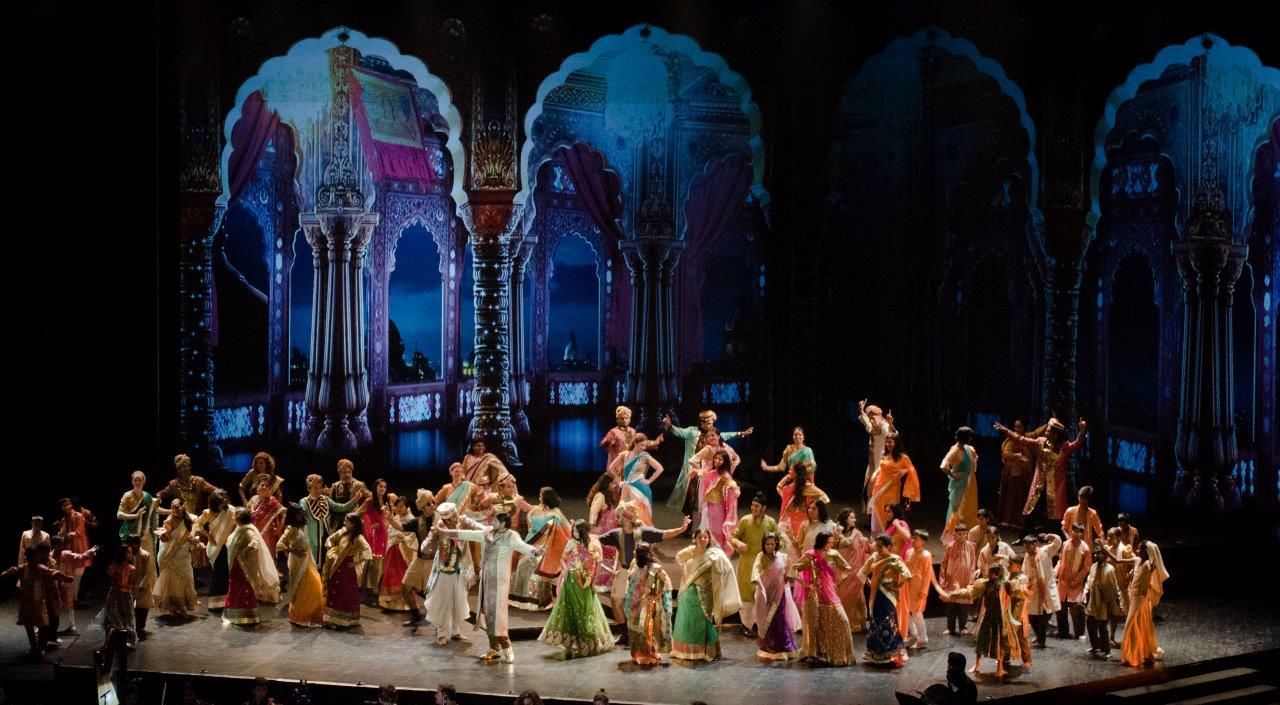Tribute to Francis

My father was a very successful person and an exceptional human being. In order to deserve his love, I thought I had to be successful too, so, as a child, I was very eager with my studies, and later became a dedicated scholar. I started learning Ancient Greek and Latin, followed by a Master’s in Mathematics and eventually ended up pursuing a PhD in Ancient Cosmology. My father had several careers, and that has certainly inspired me! When I entered the Conservatory as a student of voice, he fondly complained: “first Greek, and then opera, can’t you go for things that exist in India?”. But I thought I would be as independent as he had been, when he had left his country and family to settle in his country of election.
When I entered the Conservatory as a student of voice, he fondly complained: “first Greek, and then opera, can’t you go for things that exist in India?”
In fact, I was probably genetically determined to become an opera singer, as my great grandfather had been a very famous bass singer, and most of my mother’s family, generations before me, had been professional singers. But on the Wacziarg side too, opera occupied a privileged place. My father used to go to the theatre as a child, and till the end of his life, he still hummed arias which he remembered from having attended a single performance. And we can be certain it was pure prodigious memory, for he knew the songs in their French translation, which nobody else knew after operas started to be performed and recorded in their original language.

Ours is an intricate story of influence. After I had started performing an art form which I naively thought I had introduced in the family, my father decided to encourage me in a way that very few parents do. He helped me by producing the first opera ever staged in Delhi, The Fakir of Benares in 2002, the score of which I had bumped into in a second-hand bookstore in Paris. I was still a student, and the title role was performed by my teacher in the conservatory, who coached every other singer, none of whom had ever been on stage professionally. What could have been totally amateurish was saved by my father’s talent for production. He hired the best stage director we could dream of, Muzaffar Ali; he had the Siri Fort Auditorium open its orchestra pit for the first time, and he motivated all his friends to lend a helping hand to this crazy project. So even if, musically, we were not of top quality, it was a spectacular show and got great response from the audience. The dances, the sets, the costumes, everything contributed to make The Fakir of Benares as ‘Bollywood’ as people wanted.

Then my father decided to set up The Neemrana Music Foundation. He certainly wanted to create opportunities for me to spend time with him in India, but he also sincerely believed that anything beautiful should be grown in India. Francis Wacziarg loved India beyond anything else. By producing one opera after another, from Carmen to Traviata, from Orfeo to Romeo and Juliet, he touched many peoples’ lives, inspired many young singers and musicians to take up the musical career seriously.
One of his brilliant intuitions was to stage Indian-themed operas, as he loved the idea that the West had payed a tribute to India, through an art form that hardly anyone knew in the country. There are about 200 operas set in India, as far as I know, and that says a lot about the fascination Incredible India has always inspired in the Europeans.
One of his brilliant intuitions was to stage Indian-themed operas, as he loved the idea that the West had payed a tribute to India, through an art form that hardly anyone knew in the country.
The Pearl Fishers, by George Bizet, is set on an island between India and Sri Lanka, and after successful performances in Delhi and Mumbai in 2005, the Neemrana production travelled to Colombo in 2008. If I Were King tells of the grandeur of palaces in Goa. But let’s get back to our tale for a moment…
Francis Wacziarg came to India in 1969, as a journalist, and instantly fell in love with the country. He said it felt like he had lived here in a previous life. He loved the heat and the smells, the crowds and the confusion, just as much as the philosophy, the music, the dance, but more than any other thing, he loved the people. After an initial four months of travelling in India, he had made up his mind and only went back to France to apply for a job as a commercial attaché at the French Consulate in Mumbai; He stayed there as long as he could, but never wanted to leave India, so simply quit when he was asked to shift to another country. He worked at BNP Bank for some time, and then started his own buying agency, which after a few years controlled 90% of the textile exports to France.
Meanwhile, he was on the roads of Rajasthan with his friend Aman Nath photographing traditional arts and crafts, discovering the Shekhavati wall paintings, and visiting some forts and palaces. When they came across Neemrana, they could not resist the temptation to buy it, although it was badly in ruins. But restoration soon became a passion, and my father became one of the founding members of INTACH. Eventually, Neemrana became a model and launched a trend for heritage hospitality. In fact, among my vivid childhood memories are the trips to Rajasthan in a non-ac car (which I loved) and going from one antique shop to another (which, as a child, I loved much less!).
When they came across Neemrana, they could not resist the temptation to buy it, although it was badly in ruins.
When my father travelled to France to visit us, he would always take us out to concerts, and this is how Mozart’s 40th Symphony became my ‘favourite song’! But it was not opera at that time; opera come much later: through a filmed version of one, screened in a cinema-house, which the entire family was bored looking at, but which, to me, was a revelation that started a period of fanatic listening to a few operas: Boheme and Tosca, then Traviata and The Magic Flute were operas that I came to know by heart. I used to sing over the CD, and my brother would try to shut me up with his electric guitar. Ah, the memories!
I think my father regretted having missed us when we were children and he tried to make up with spending as much time as possible later on. He would surprise me by turning up at my opera performances – in Vienna, in Milan, Bangkok. He was my greatest support. But I have to say that the toughest times for me were when I sang in his productions, because everybody was asking me when cars were late or pianos were out of tune, and of course, I had the extra stress of having to prove myself, since I was ‘the producer’s daughter’. That is one of the reasons why I have now retired from the opera stage: it would not only take up too much of my time, but would also be too stressful to be the producer and one of the singers. Besides, now I have two young children of my own whom I want to spend time with. But I have no regret, as I was fortunate enough to sing most of the roles I had dreamt of: Traviata, Rigoletto, Boleme, Lucia, etc. Actually, I am so happy when I see young artists performing – there is really a lot of talent in this country! Maybe it is because most Indians speak three languages, but I find Indians have an exceptional ear for music.
He would surprise me by turning up at my opera performances – in Vienna, in Milan, Bangkok. He was my greatest support.
Now the Foundation has developed its the educational activities even further. It was always my father’s wish, and he was the one who set up the boy’s choir at the Blind Relief Association. Now we have a children’s choir for the underprivileged at one of the Khushii centres, and we even have a music class for toddlers. And so it happens that at Neemrana, we teach music from birth to death.
And so it happens that at Neemrana, we teach music from birth to death.
Thanks to the support of the European Union, we have also developed the education for strings instrumentalists, holding regular workshops in association with the Delhi School of Music and the Kolkata Youth Orchestra. We have been sending two scholars to France on a yearly scholarship for the past 9 years, and are proud to say that education has been very rewarding. We now have some very good singers and musicians, whom the Neemrana Music Foundation has really helped grow. Our voice teacher comes four times a year, and stays for an entire month, so that gives some sort of regularity to students.

My father was involved in the day-to-day activities of the Foundation, dropping by at classes or rehearsals, and finding it refreshing after a day of business. He did everything with a passion, and his generosity is missed by everyone. He was loved by many people in Delhi, for having connected immediately with their hearts no matter their position in society.





